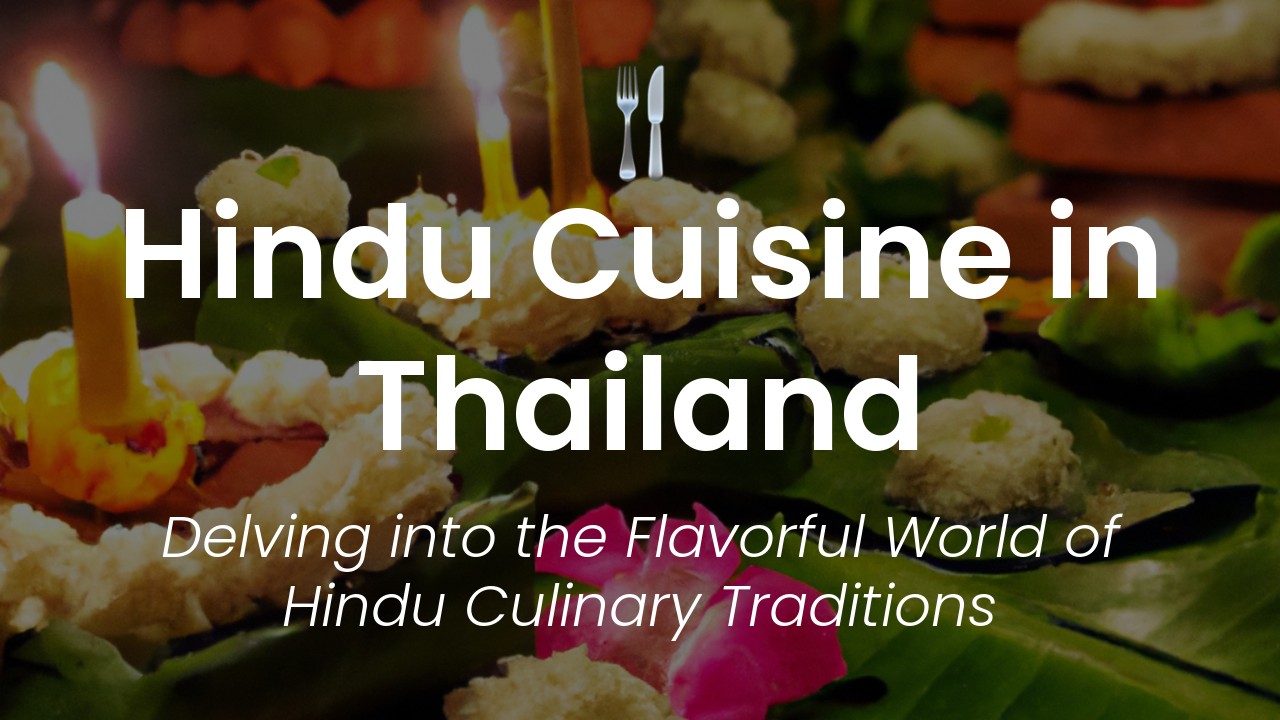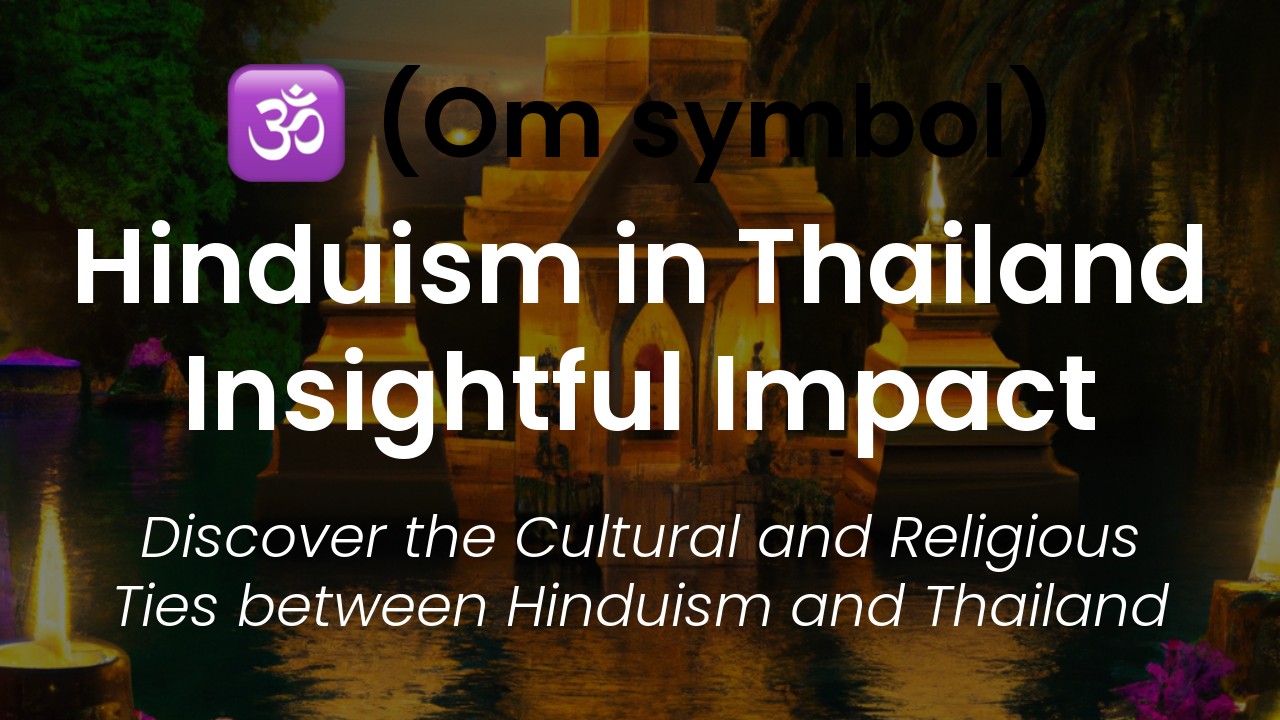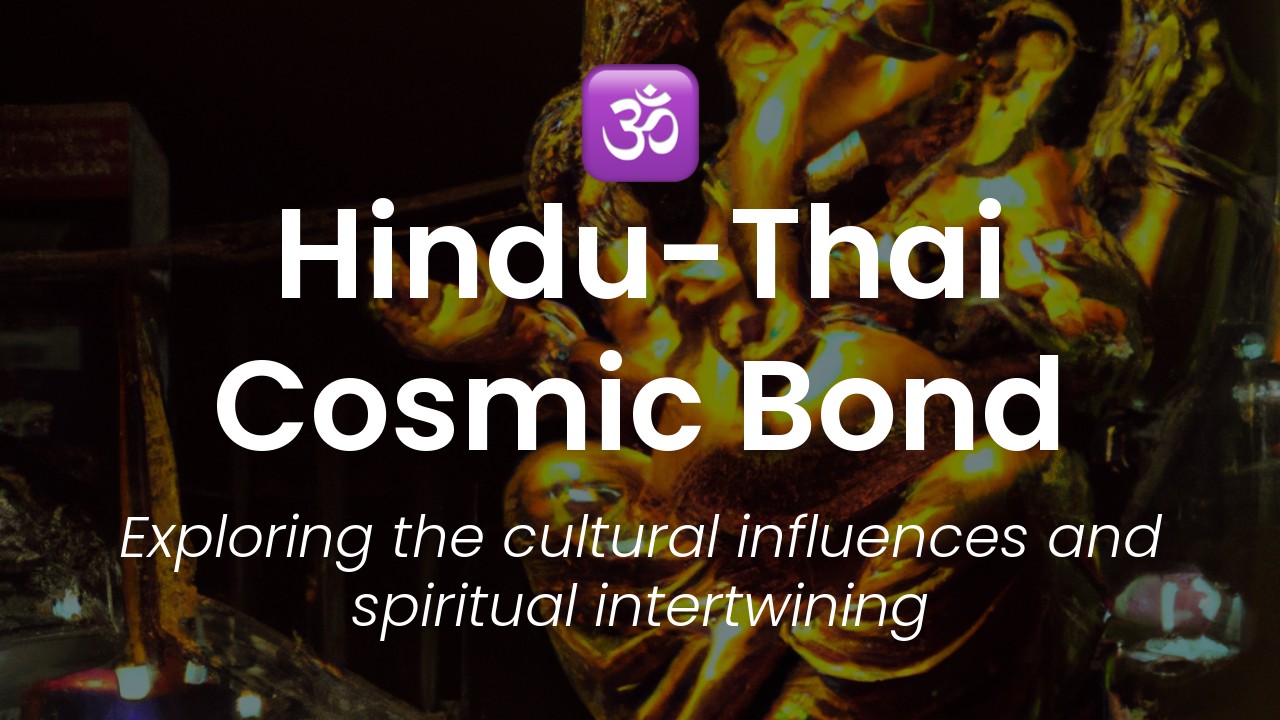As a Thai national, I have grown up in a culturally rich and diverse environment. Our country is home to several ethnicities who have all made their distinctive contribution to Thai culture. One of the most significant influences has been that of the Hindu culture. Although a relatively small minority in Thailand, the Hindus have left an indelible imprint on our society, especially when it comes to food and cuisine.
Thai food is renowned for its intricate blend of flavors and spices, and Hindu cuisine has added a unique dimension to it. An important aspect of Hindu culture is their dietary customs, which are deeply rooted in religious beliefs and practices. Being a foodie myself, I have always been fascinated by the various Hindu customs and traditions associated with food. So, I decided to undertake a culinary journey in search of the lesser-known aspects of Hindu cuisine in Thailand.
In this blog post, I will be sharing my experience of this culinary expedition. From exploring the significance of vegetarianism in Hindu culture to tasting some delicious Indian sweets, I will take you on a journey that will unravel the many mysteries of Hindu cuisine in Thailand. Join me in this adventure, as I uncover the rich and vibrant food culture of the Thai Hindus.
Vegetarianism in Hinduism
When it comes to Hinduism, one of the most prominent beliefs is the practice of vegetarianism. In Hindu culture, the cow is worshipped as a sacred animal, and it is forbidden to consume beef. Similarly, many Hindus also refrain from consuming pork and other meats.
This practice of vegetarianism can be seen in the dietary customs of Thai Hindus as well. However, it is important to note that not all Thai Hindus are vegetarians, and some consume meat in moderation.
For those who choose to follow a vegetarian diet, there are a plethora of delicious options available. Thai cuisine is known for its use of fresh herbs and spices, which add both flavor and nutritional value to dishes.
Some of the most popular vegetarian dishes in Thai Hindu cuisine include:
- Pad Thai Jay: a vegetarian version of the classic Pad Thai dish, made with tofu and vegetables instead of meat.
- Som Tum Jay: a vegetarian version of the popular spicy papaya salad, made with soy sauce instead of fish sauce.
- Gang Kiew Wan Jay: a vegetarian version of the popular green curry, made with coconut milk and a variety of vegetables.
- Tom Kha Jay: a vegetarian version of the classic Tom Kha soup, made with tofu and mushrooms instead of chicken.
Spices & herbs in Thai Hindu cooking
As mentioned earlier, Thai cuisine is known for its use of fresh herbs and spices. Many of these herbs and spices are not just used for flavor, but also for their health benefits.
Some of the most commonly used herbs and spices in Thai Hindu cooking include:
- Lemongrass: this herb is believed to have anti-inflammatory and antioxidant properties, and is commonly used in soups and curries.
- Kaffir lime leaves: these leaves are used to add a citrusy flavor to dishes, and are commonly used in soups and stir-fries.
- Galangal: a type of ginger that is used to add a mild, fruity flavor to dishes. It is often used in curries and soups, and is believed to have anti-inflammatory properties.
- Turmeric: this spice is used to add color and flavor to dishes, as well as for its health benefits. Turmeric is believed to have anti-inflammatory and antioxidant properties, and is commonly used in curries.
Ayurvedic principles in food preparation
Ayurveda is an ancient Indian system of medicine that focuses on holistic healing and wellness. In Ayurvedic cooking, the emphasis is on balance and harmony between different flavors and cooking techniques.
In Thai Hindu cuisine, Ayurvedic principles are also used in food preparation. For example, the use of spices and herbs is not just for flavor, but also for their medicinal properties. Similarly, the balance of sweet, sour, salty, and bitter flavors in dishes is also important in Thai Hindu cooking.
Ayurveda also emphasizes the importance of eating fresh, seasonal foods, and avoiding processed or packaged foods. In Thai Hindu cuisine, this principle is also observed, with an emphasis on using fresh, locally-sourced ingredients.
Festivals and special dishes
In addition to the everyday vegetarian dishes, Thai Hindus also have special dishes that are prepared during festivals and other special occasions.
For example, during the Hindu festival of Diwali, which is also known as the Festival of Lights, a variety of sweet dishes are prepared. These include:
- Barfi: a type of sweet made with condensed milk, sugar, and nuts.
- Laddu: a sweet made with chickpea flour, sugar, and ghee.
- Gulab Jamun: a sweet made with powdered milk, flour, and sugar, which is soaked in syrup.
Other festivals, such as Holi and Raksha Bandhan, also have their own special dishes and sweets.
Influences on Thai cuisine
Thai cuisine has been influenced by a variety of cultures over the centuries, including Indian, Chinese, and Malay cuisine. As a result, Thai Hindu cuisine also reflects these influences.
For example, the use of spices and herbs in Thai Hindu cooking is similar to that in Indian cuisine. Similarly, the use of coconut milk in Thai curries is likely influenced by Malay cuisine.
The fusion of different culinary traditions has resulted in a unique and delicious cuisine that is loved by people all over the world.
Exploring Hindu-inspired restaurants in Thailand
For those interested in exploring Thai Hindu cuisine further, there are many restaurants in Thailand that serve traditional Hindu dishes.
One such restaurant is Na Aroon, located in Bangkok. This restaurant serves a variety of vegetarian dishes, as well as special Hindu dishes during festivals.
Another popular restaurant is Govinda, which has locations in Bangkok and Pattaya. This restaurant serves a variety of vegetarian and vegan dishes, as well as special dishes during festivals.
Conclusion:
In conclusion, Thai Hindu cuisine is a rich and flavorful tradition that reflects the cultural and religious beliefs of the Thai Hindu community. From the use of fresh herbs and spices to the incorporation of Ayurvedic principles in food preparation, Thai Hindu cuisine is a testament to the importance of balance and harmony in both food and life. By exploring the vegetarian and special dishes of Thai Hindu cuisine, we can gain a better appreciation for the diverse culinary traditions of Thailand and the world.







